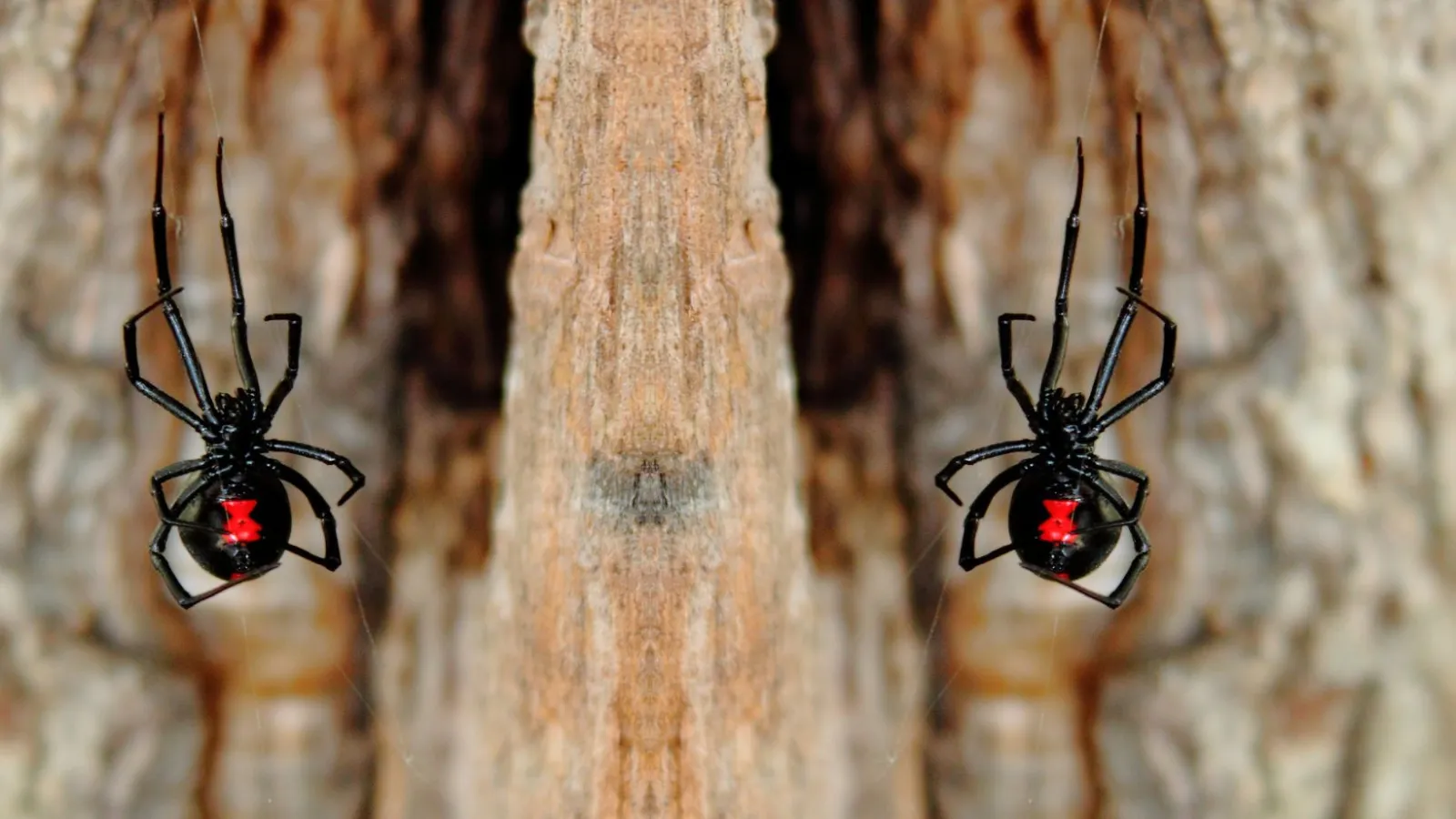
Black & Brown Widow Spiders
Black Widow Spider
Identification: Black widows (Latrodectus mactans) are easily recognizable due to their shiny, black bodies and the iconic red hourglass-shaped marking on the underside of the female's abdomen. Female black widows are larger than males, growing up to 1.5 inches in length (including the leg span), while males are much smaller and lighter in color. Male black widows are generally not a concern as they rarely bite and are much less venomous.
Behavior: Black widows are nocturnal and prefer dark, undisturbed places where they can build their irregular, tangled webs. Common hiding spots in Toms River homes include garages, basements, sheds, and woodpiles. They are shy by nature and typically only bite in self-defense, such as when they are disturbed or feel threatened.
Venom: While black widow bites are rarely fatal to humans, their venom is potent and can cause significant symptoms. The bite of a black widow can cause muscle pain, cramps, and spasms, as well as nausea, difficulty breathing, and other symptoms. Medical attention is often recommended after a bite to manage the effects of the venom, especially for young children, the elderly, or individuals with compromised immune systems.
Brown Widow Spider
Identification: Brown widows (Latrodectus geometricus) are a closely related species to black widows but have some key differences in appearance. Brown widows are generally smaller than black widows and have a light tan to brown coloration with distinctive orange or yellow hourglass markings on their abdomen. Their bodies are also marked with black, white, or yellowish-brown patterns that distinguish them from the solid-colored black widow.
Behavior: Like black widows, brown widows prefer undisturbed areas for their webs. However, brown widows are more likely to be found outdoors in sheltered areas such as under patio furniture, eaves, fence posts, or in cluttered areas around the home. They are also less aggressive and more reclusive than black widows, tending to avoid human interaction unless directly threatened.
Venom: While brown widows also have venom, their bite is considered less dangerous than that of a black widow. Symptoms from a brown widow bite are typically milder, often causing localized pain, redness, and some swelling. Although still unpleasant, bites from brown widows generally do not result in the more severe systemic effects associated with black widow bites. However, individuals who are allergic or more sensitive to venom may still experience more pronounced symptoms and should seek medical attention if bitten.
Habitat & Risk Factors
Both black and brown widows thrive in Toms River's relatively temperate climate and can be found in various environments around homes and businesses. These spiders prefer quiet, undisturbed locations and are more active during the warmer months. Some common hiding places for black and brown widows include:
- Woodpiles and stacked firewood
- Outdoor furniture
- Sheds and garages
- Under decks, eaves, and porches
- Inside cluttered storage areas
Widow spiders often come into homes unintentionally when they seek out warmth or shelter, particularly during cooler weather.
Prevention and Control with Ozane Termite & Pest Control
At Ozane Termite & Pest Control, we specialize in keeping your home safe from venomous spiders like black and brown widows. Here's how we can help:
- Thorough Inspection: Our team will inspect your property to identify any areas where widow spiders are likely to be hiding or nesting. We'll pay close attention to basements, garages, outdoor areas, and other common hiding spots.
- Targeted Treatments: Based on our findings, we apply safe, effective treatments to eliminate existing widow spider populations and deter future infestations. This includes addressing both outdoor areas and potential indoor harborage zones.
- Prevention Advice: Widow spiders often enter homes through small cracks or gaps. We'll recommend exclusion methods, such as sealing entry points, reducing clutter, and keeping outdoor areas clean and free of debris where these spiders can hide.
- Ongoing Monitoring: Widow spiders can return, so we offer regular monitoring and maintenance services to ensure your home stays spider-free year-round.
Similar Pests: Brown Recluse Spider, Cellar Spiders
